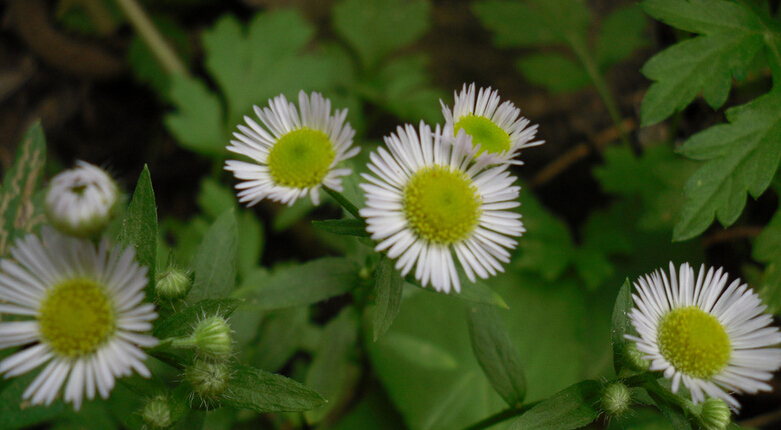One of the students held up his hand;
一个学生举起了手:
and though he could see quite well why you couldn't have lower-cast people wasting the Community's time over books,
不能让低种姓的人在书本上去浪费社会的时间,而且读书总有可能读到什么东西,
and that there was always the risk of their reading something which might undesirably decondition one of their reflexes,
有破坏他们的某个条件设置的危险,那是不可取的。
yet … well, he couldn't understand about the flowers.
这些他都很想得通;但……晤,但对花他却想不通,
Why go to the trouble of making it psychologically impossible for Deltas to like flowers?
为什么要费力气去让德尔塔们从心理上厌恶花?

Patiently the D.H.C. explained.
孵化及条件设置中心主任耐。
If the children were made to scream at the sight of a rose, that was on grounds of high economic policy.
心地做了解释。培养孩子们见了玫瑰花就尖叫是为了高度节约。
Not so very long ago (a century or thereabouts), Gammas, Deltas, even Epsilons, had been conditioned to like flowers–flowers in particular and wild nature in general.
不能算很久以前(大约才过去一个世纪),伽玛们、德尔塔们甚至爱扑塞隆们都有喜欢花朵的条件设置——一般地说是喜欢野外的自然,特殊地说是喜欢花朵。
The idea was to make them want to be going out into the country at every available opportunity, and so compel them to consume transport.
其目的是让他们一有机会就产生到田野里去的要求,逼得他们多花交通费。
"And didn't they consume transport?" asked the student.
“他们花交通费了吗?”学生问。
"Quite a lot," the D.H.C. replied. "But nothing else."
“花了很多,”主任回答,“但是别的费用却不必花了。”
Primroses and landscapes, he pointed out, have one grave defect: they are gratuitous.
主任指出,樱草花和风景都有一个严重的缺点:它们是免费的。
A love of nature keeps no factories busy.
爱好大自然能使工厂工作懈怠。
It was decided to abolish the love of nature, at any rate among the lower classes; to abolish the love of nature, but not the tendency to consume transport.
于是决定取消了对大自然的爱——至少取消了低种姓的人对大自然的爱;却并不取消花交通费的倾向。
For of course it was essential that they should keep on going to the country, even though they hated it.
因为他们仍须到农村去,即使憎恨也得去,那是根本的。
The problem was to find an economically sounder reason for consuming transport than a mere affection for primroses and landscapes.
问题是能在经济上为交通消费找出更站得住脚的理由,而不是喜欢樱草花和风景什么的。
It was duly found.
恰当的理由后来找到了。
"We condition the masses to hate the country," concluded the Director.
“我们设置了条件,让人群不喜欢乡村,”主任的结论是,
"But simultaneously we condition them to love all country sports.
“却又设置了条件让他们喜欢田野里的一切运动。
At the same time, we see to it that all country sports shall entail the use of elaborate apparatus.
而我们同时又注意让田野里的运动消耗精美的器材;
So that they consume manufactured articles as well as transport. Hence those electric shocks."
让他们既消费工业品也花交通费。因此我们才给婴儿电击。”
"I see," said the student, and was silent, lost in admiration.
“明白了。”学生说完便住了嘴,佩服得五体投地。
There was a silence; then, clearing his throat, "Once upon a time," the Director began, "while our Ford was still on earth, there was a little boy called Reuben Rabinovitch. Reuben was the child of Polish-speaking parents."
沉默。主任清了清嗓子,“从前,”他开始说,“在我主福帝还在世的时候,有一个小孩,叫做鲁本·拉宾挪维奇,父母说波兰语,’
The Director interrupted himself. "You know what Polish is, I suppose?"
主任岔开了一句,“你们是知道什么叫波兰语的吧,我看?”
"A dead language."
“是一种死亡的语言。”
"Like French and German," added another student, officiously showing off his learning.
“像法语和德语一样。”另一个学生插嘴补充,炫耀着学识。
"And 'parent'?" questioned the D.H.C.
“还有‘父母’,你们知道吧?”主任问。
There was an uneasy silence. Several of the boys blushed.
短暂的木好意思的沉默,几个孩子脸红了。
They had not yet learned to draw the significant but often very fine distinction between smut and pure science.
他们还没有学会区别粗俗科学与纯粹科学之间的重大的却也微妙的差异。
One, at last, had the courage to raise a hand.
但毕竟有一个学生鼓起勇气举起了手。












